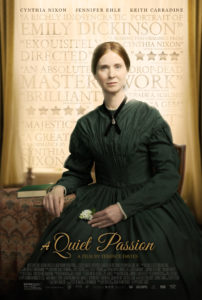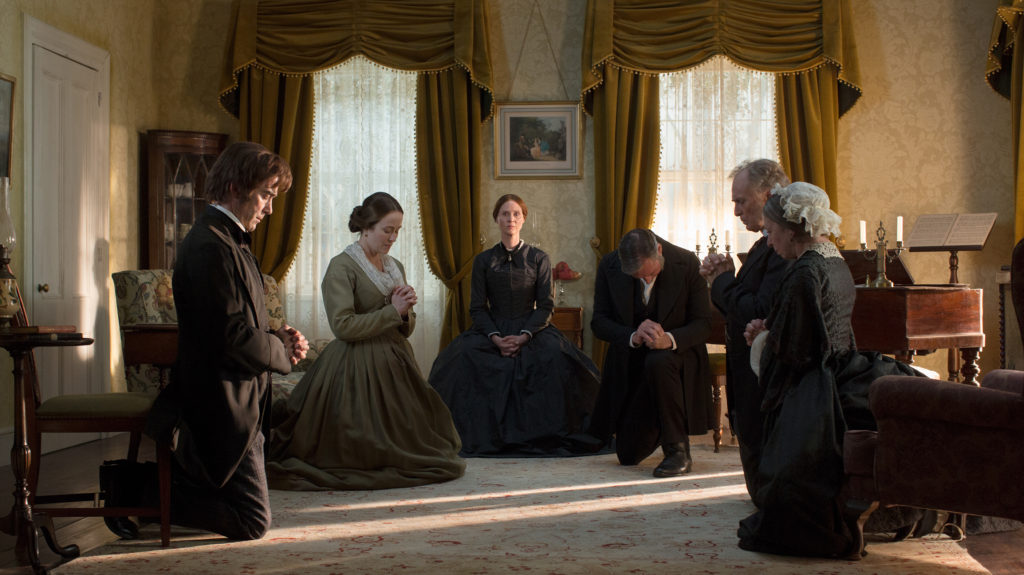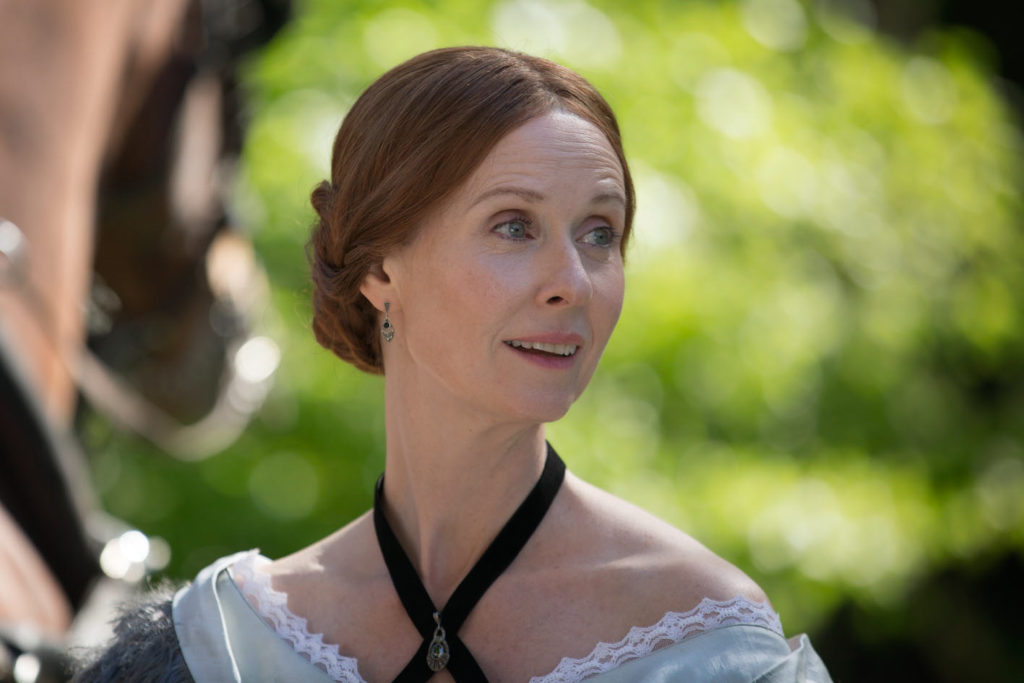Emily Dickinson Biopic Dwells in Possibility
DIRECTOR: TERENCE DAVIES/2016

“Success is counted sweetest
By those who ne’er succeed.”
Emily Dickinson would know that feeling. Stymied by expectations for women in the mid-19th century and her own fear of rejection, the precocious student (Emma Bell) grows up into the recluse poet (Cynthia Nixon) we all became acquainted with in our American Literature 101 classes. She sharpens her craft amid her wrestling with family tragedies and becoming an aging single woman in a patriarchal society centered on family. Poems are her only solace in a world not made with her in mind.
A Quiet Passion hits upon many of the themes of Dickinson’s work: Faith, religion, identity, grief, isolation, achievement, challenging of structure. And much like her short poems were snippets of single seconds in time, Passion feels like the highlight reel of significant moments in her life: Exiting school, sickness and death in her family, the Civil War. But that is where the overlap ends.
 All poetry hinges on choosing precise language. Dickinson’s oeuvre became part of the American canon because of how witty and introspective she could be in her brevity. Too many times, Passion chooses a language that doesn’t match its subject, both visually and in the script. The problem with highlight reels is that they don’t create stakes, goals, or a clear narrative. Neither do lingering still shots, even if they’re beautifully composed. And then there’s the dialogue. Take this exchange:
All poetry hinges on choosing precise language. Dickinson’s oeuvre became part of the American canon because of how witty and introspective she could be in her brevity. Too many times, Passion chooses a language that doesn’t match its subject, both visually and in the script. The problem with highlight reels is that they don’t create stakes, goals, or a clear narrative. Neither do lingering still shots, even if they’re beautifully composed. And then there’s the dialogue. Take this exchange:
Mr. Dickinson: Ah, the eternal Miss Buffam.
Miss Buffam: Alas, no, sir. Father Time knocks at my door also.
Mr. Dickinson: And what precautions do you take?
Miss Buffam: I can try never to be at home when he calls.
Mr. Dickinson: All women should aspire to that state of readiness.
Miss Buffam: No, women should only aspire to be younger than their waistlines. Then the unpleasant topic of age becomes almost irrelevant.
Mr. Dickinson: And what should men aspire to?
Miss Buffam: Tobogganing.
This conversation’s grand finale?
Mr. Dickinson: Your banter Miss Buffam is, as always, delightful.
Miss Buffam: Take it, Mr. Dickinson, as the outpourings of a poor, tormented soul.
In what universe is this dialogue a natural outpouring? The supposedly clever Miss Buffam’s words just clunk like she’s reading from a script, and actress Catherine Bailey’s attempts to overcompensate with a perky performance cannot save it.

The most redeeming part of this film is the poet herself, Cynthia Nixon. She lets you feel both sympathy and frustration for her character, letting Emily stay a complicated heroine. And she embodies both the gentleness and the cleverness that glows in the poetry she recites over the action. It makes me hopeful for what this film could have been, but, alas, in the words of Dickinson herself, it will just have to “dwell in Possibility—”

